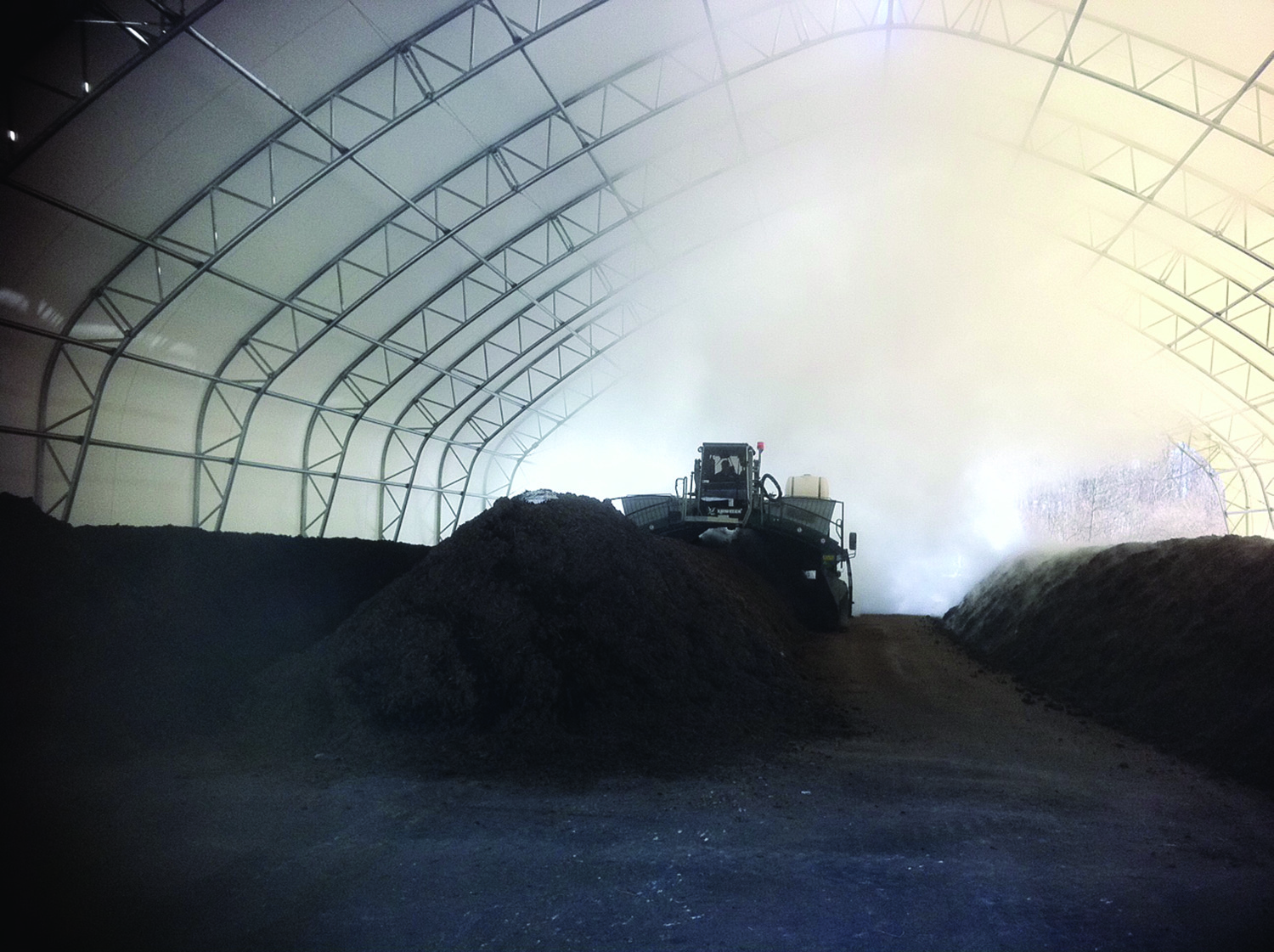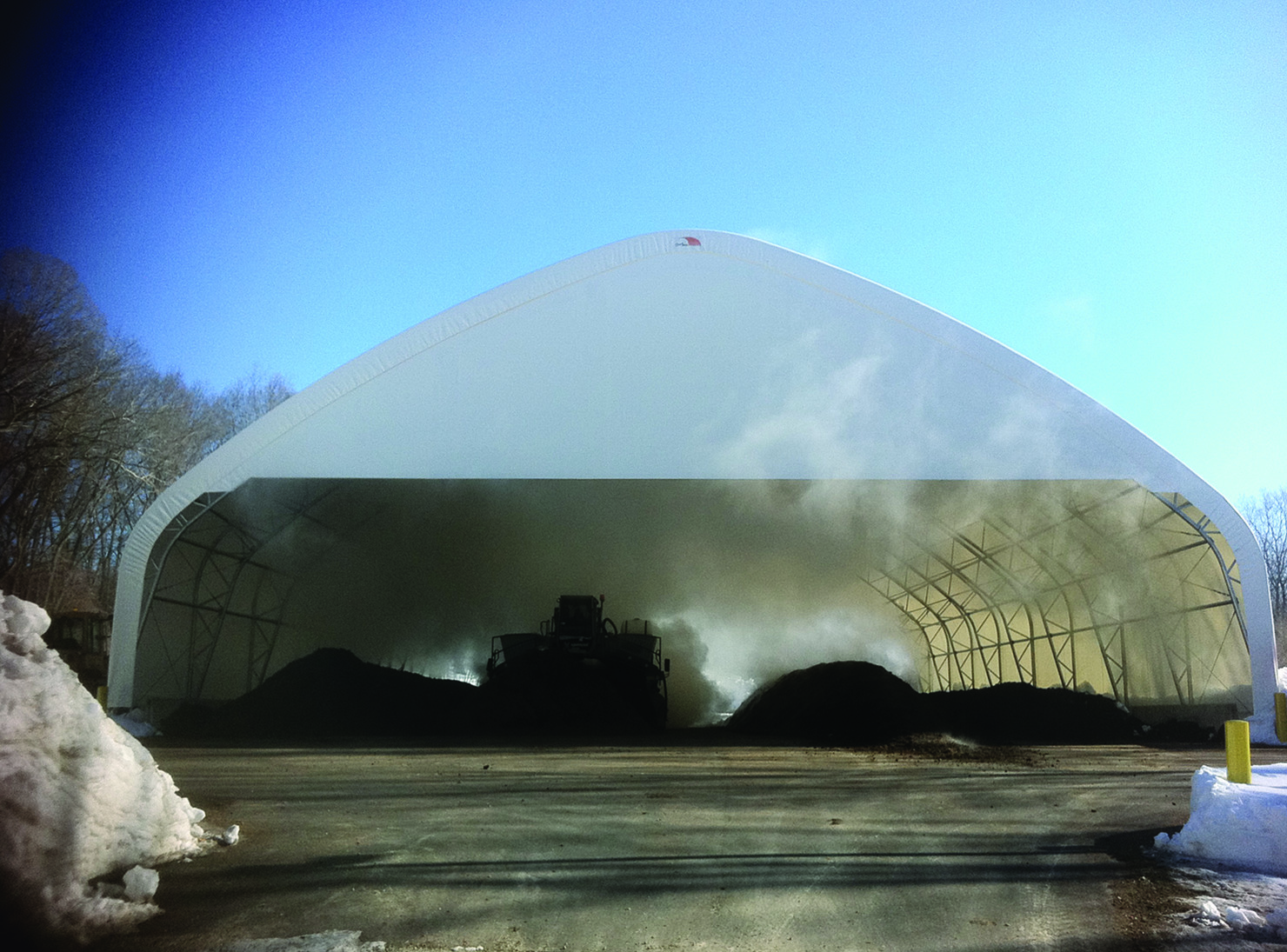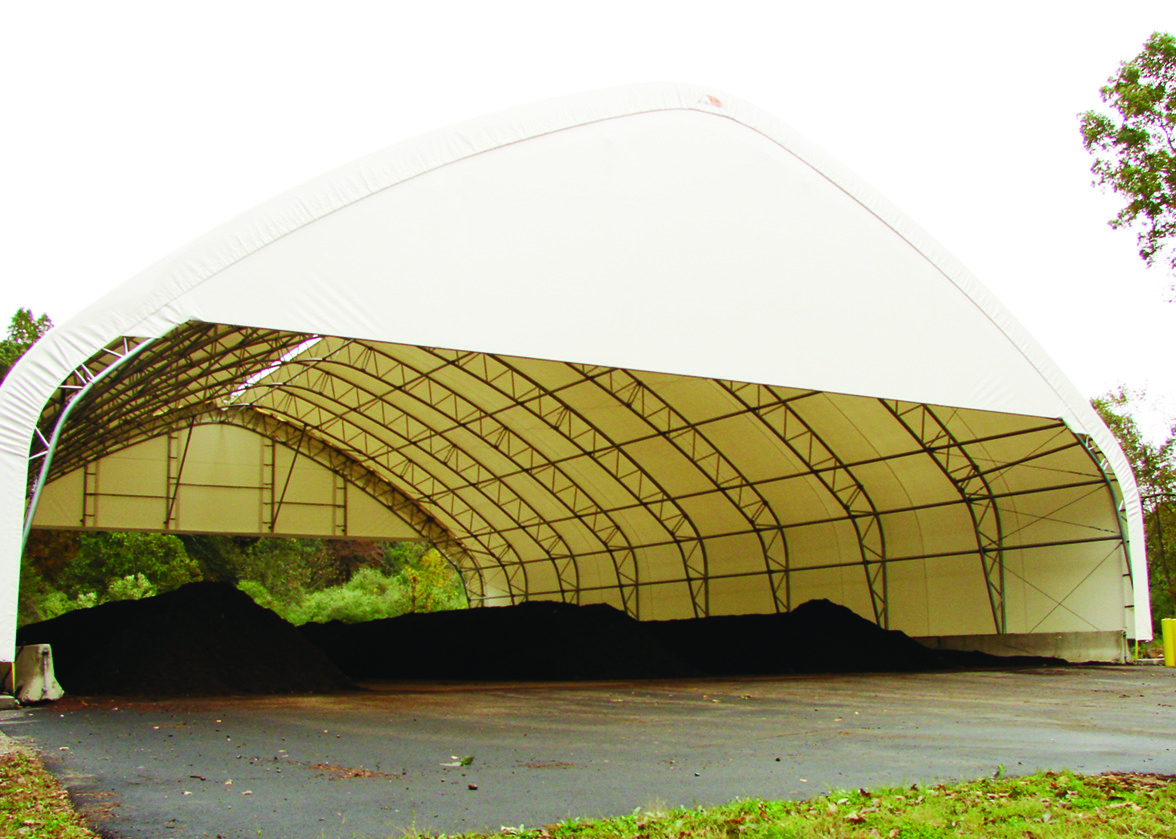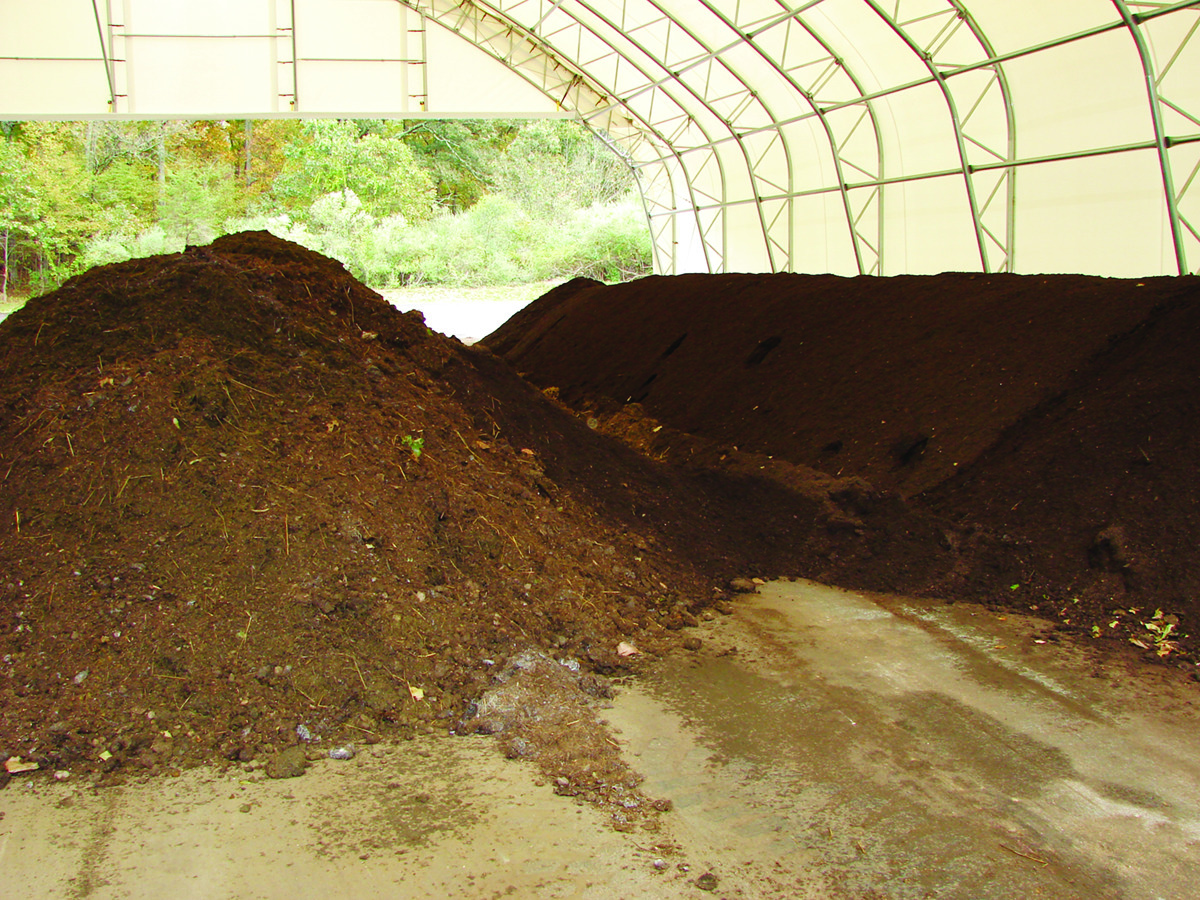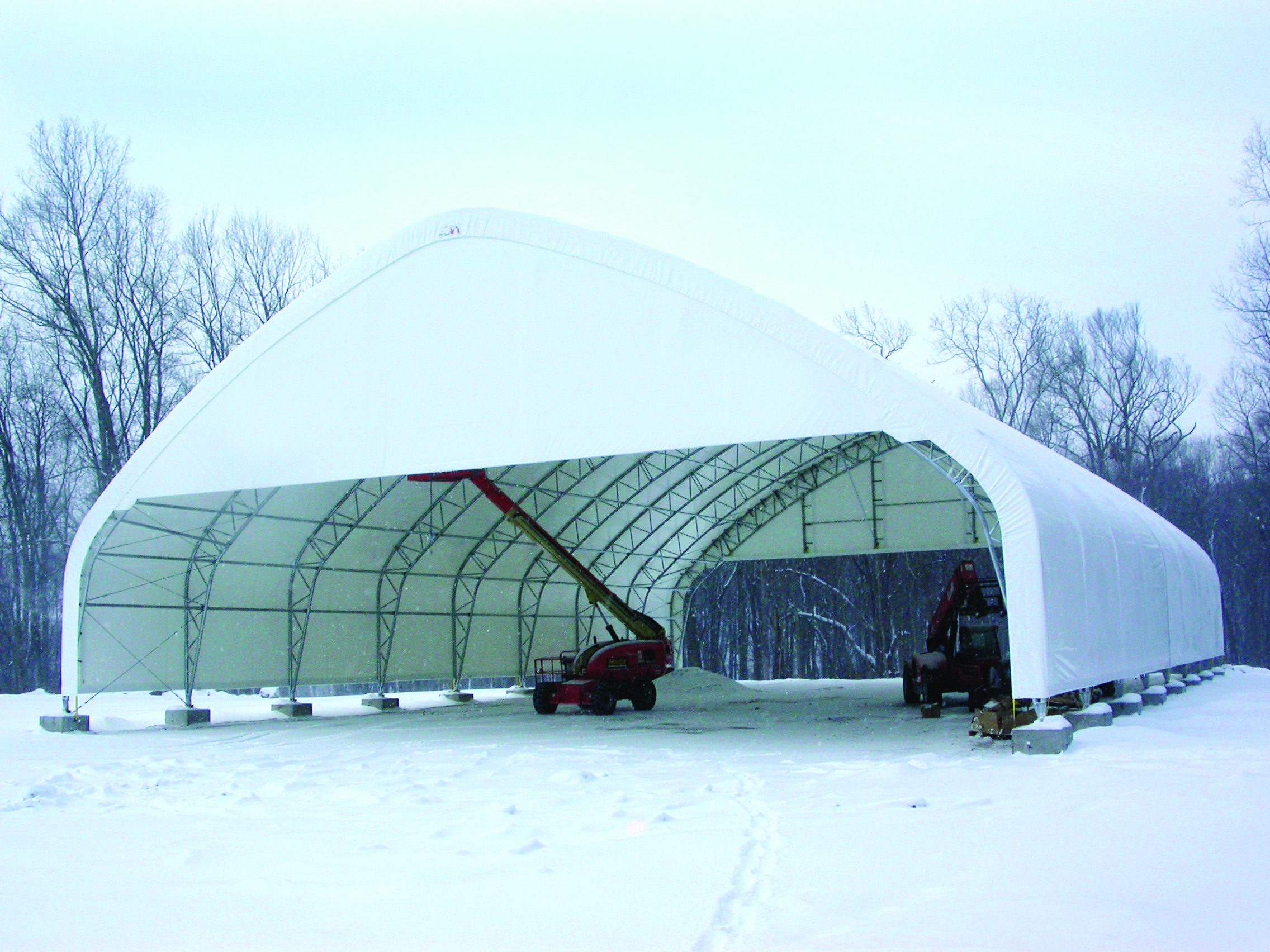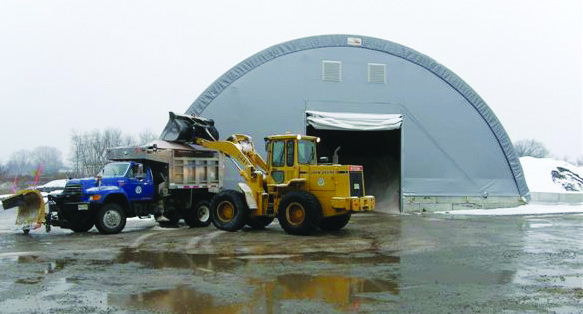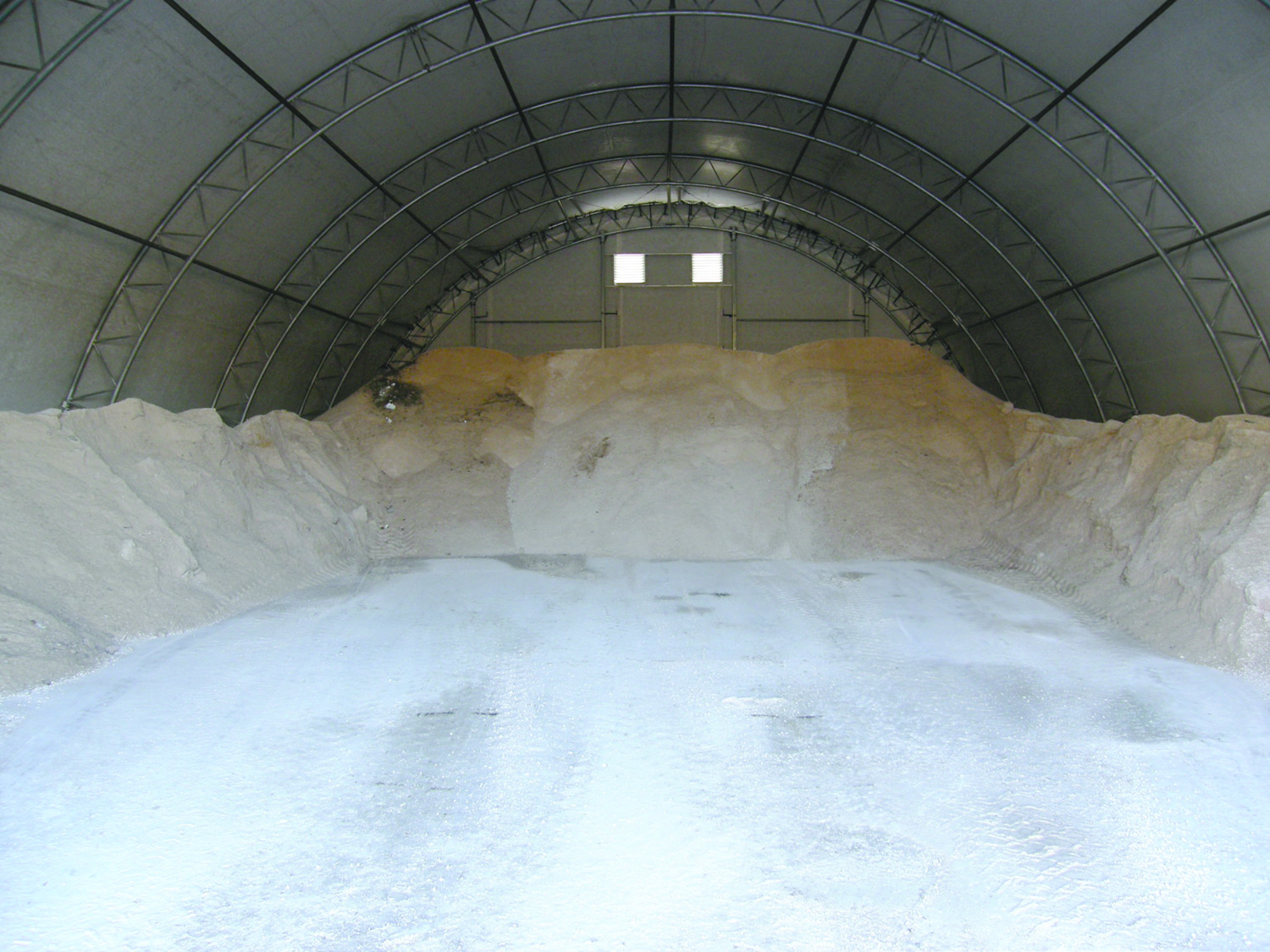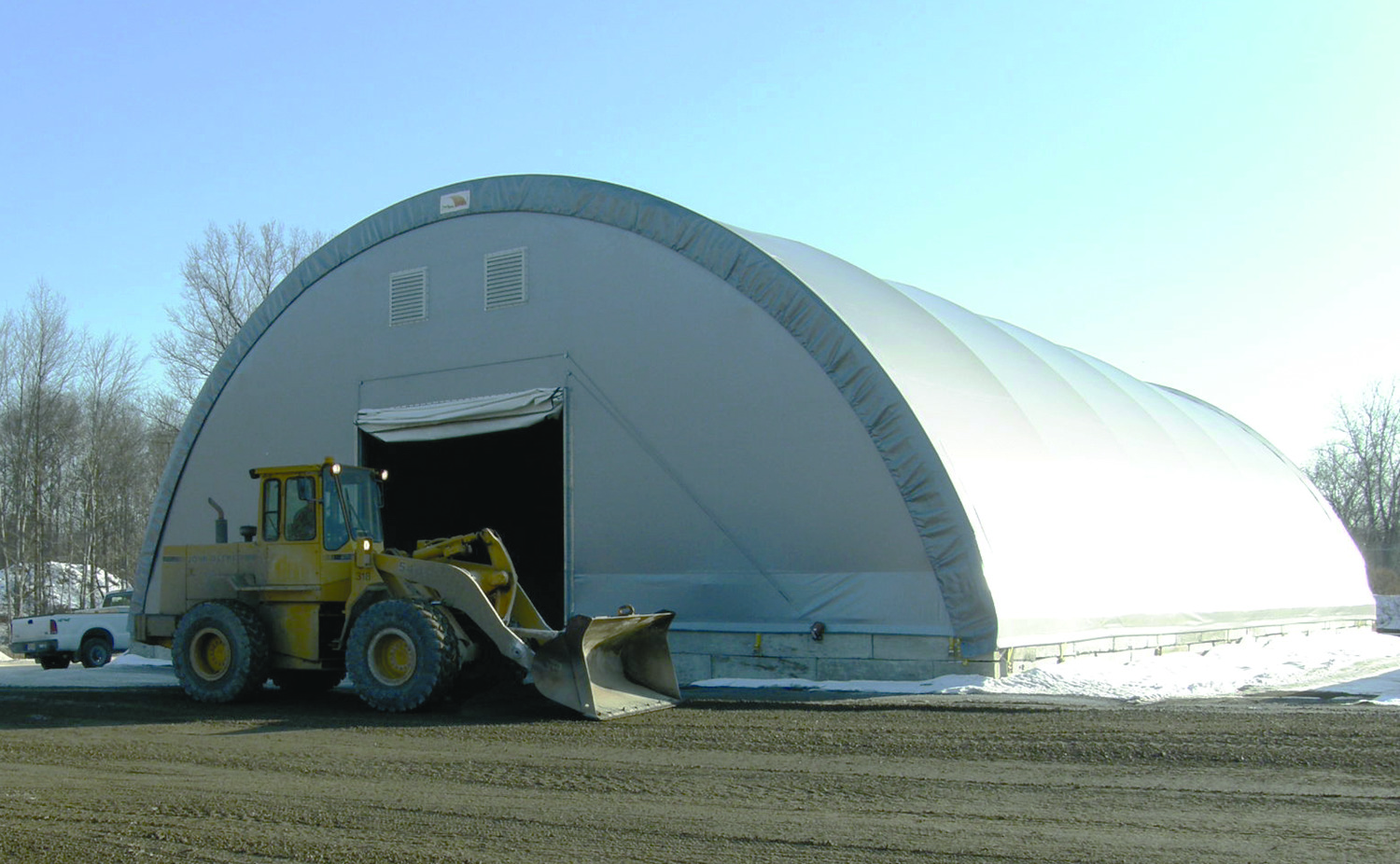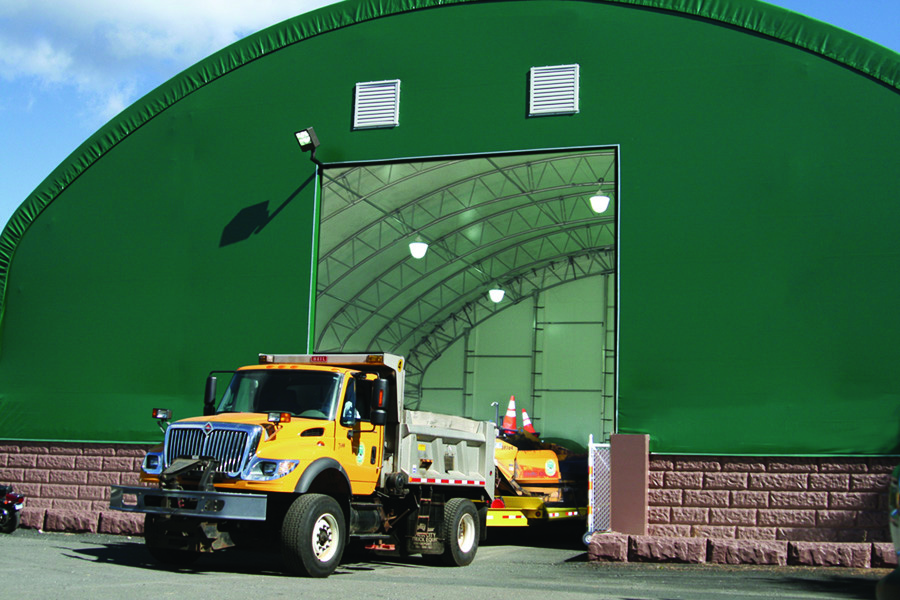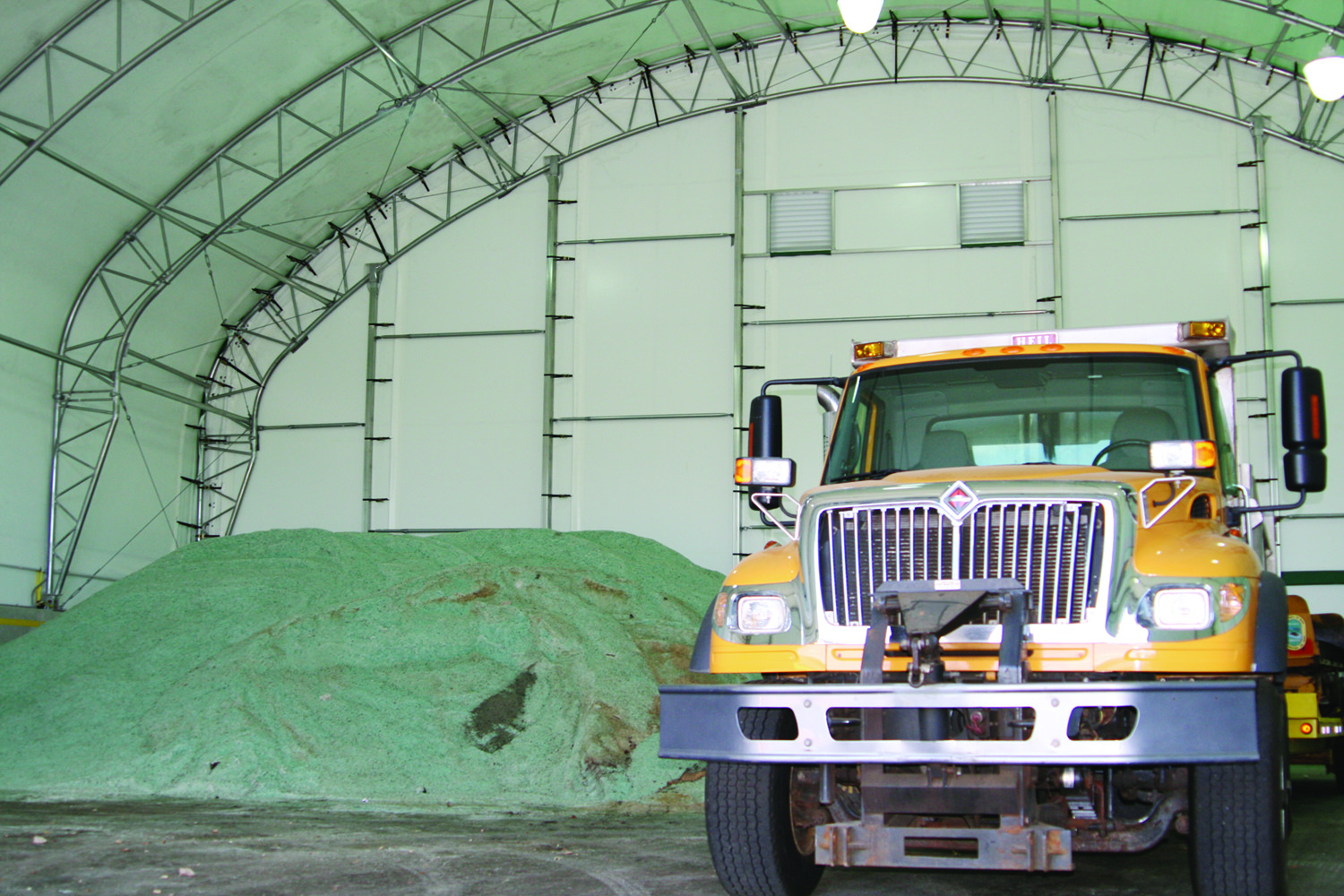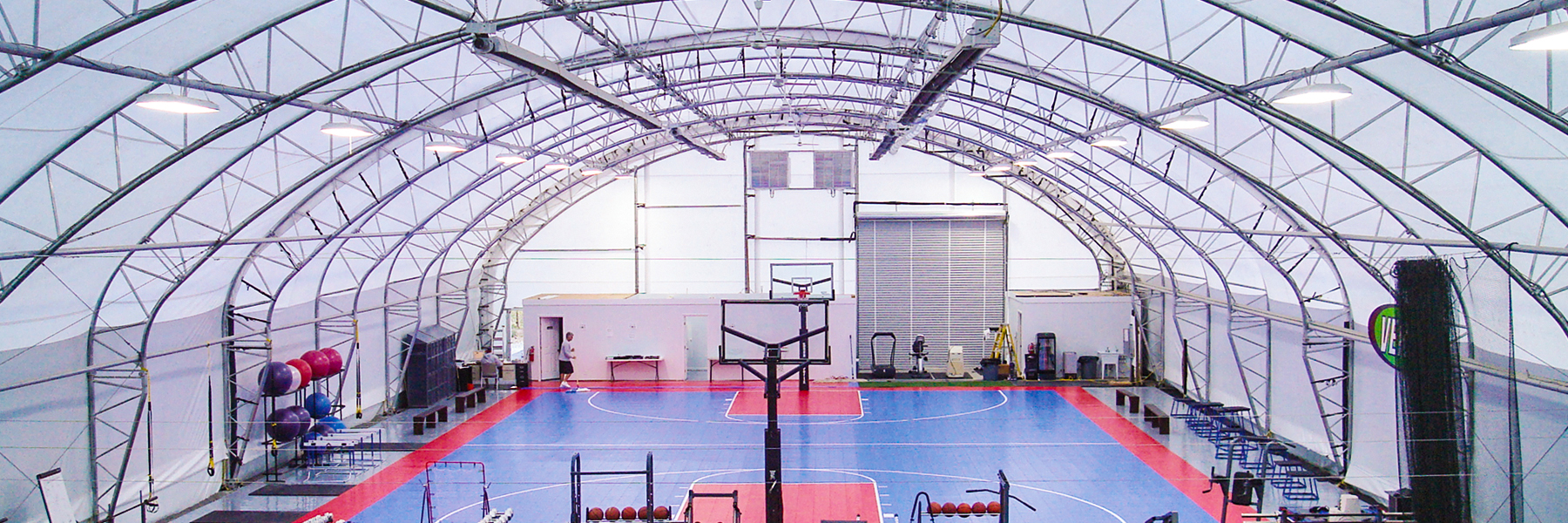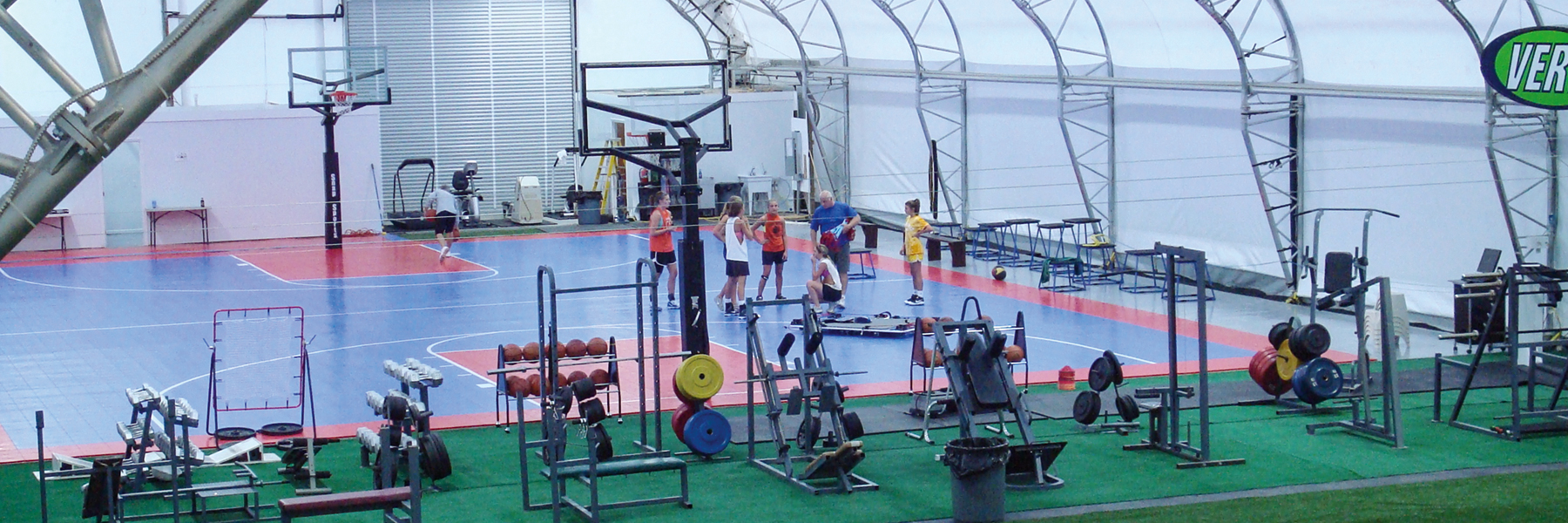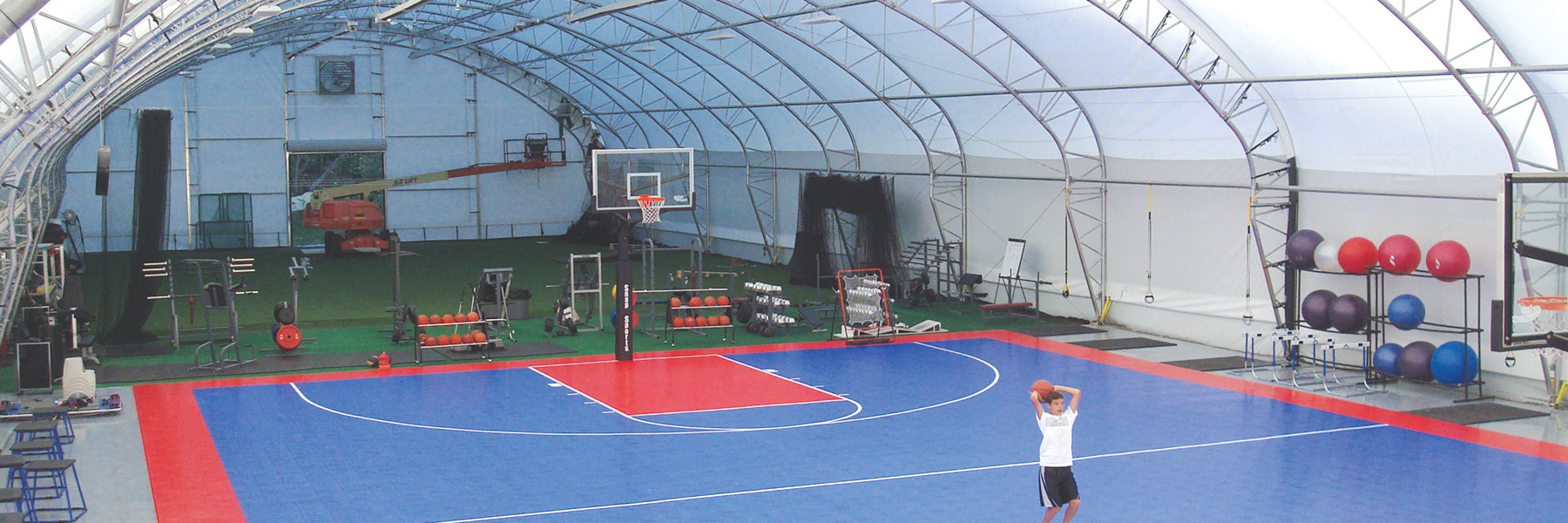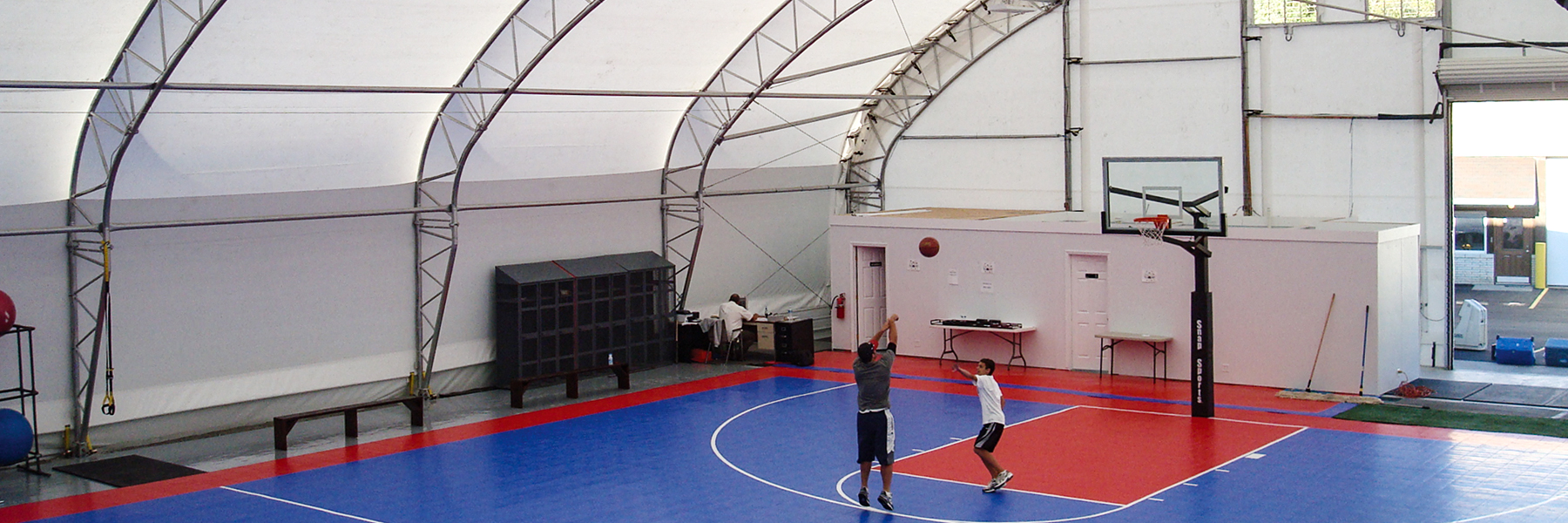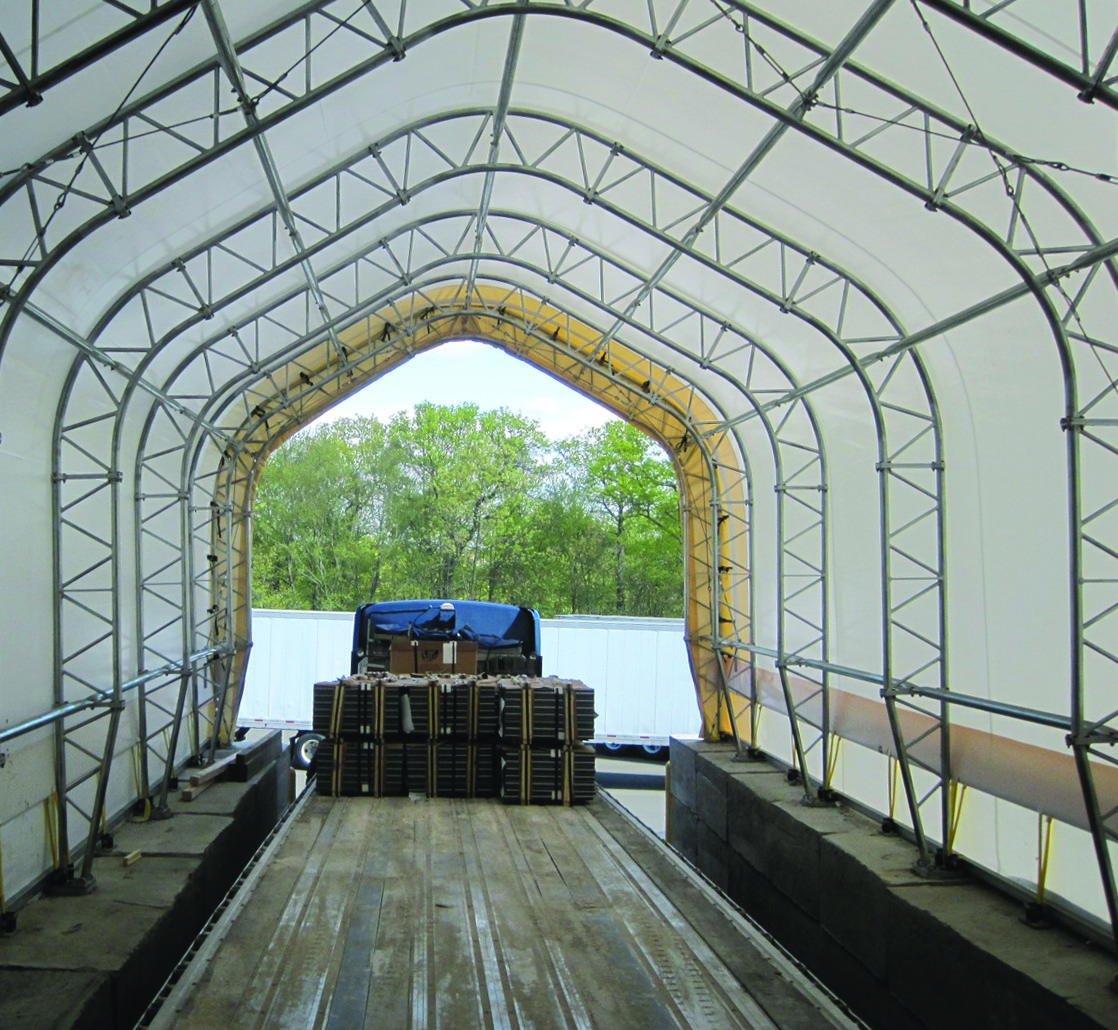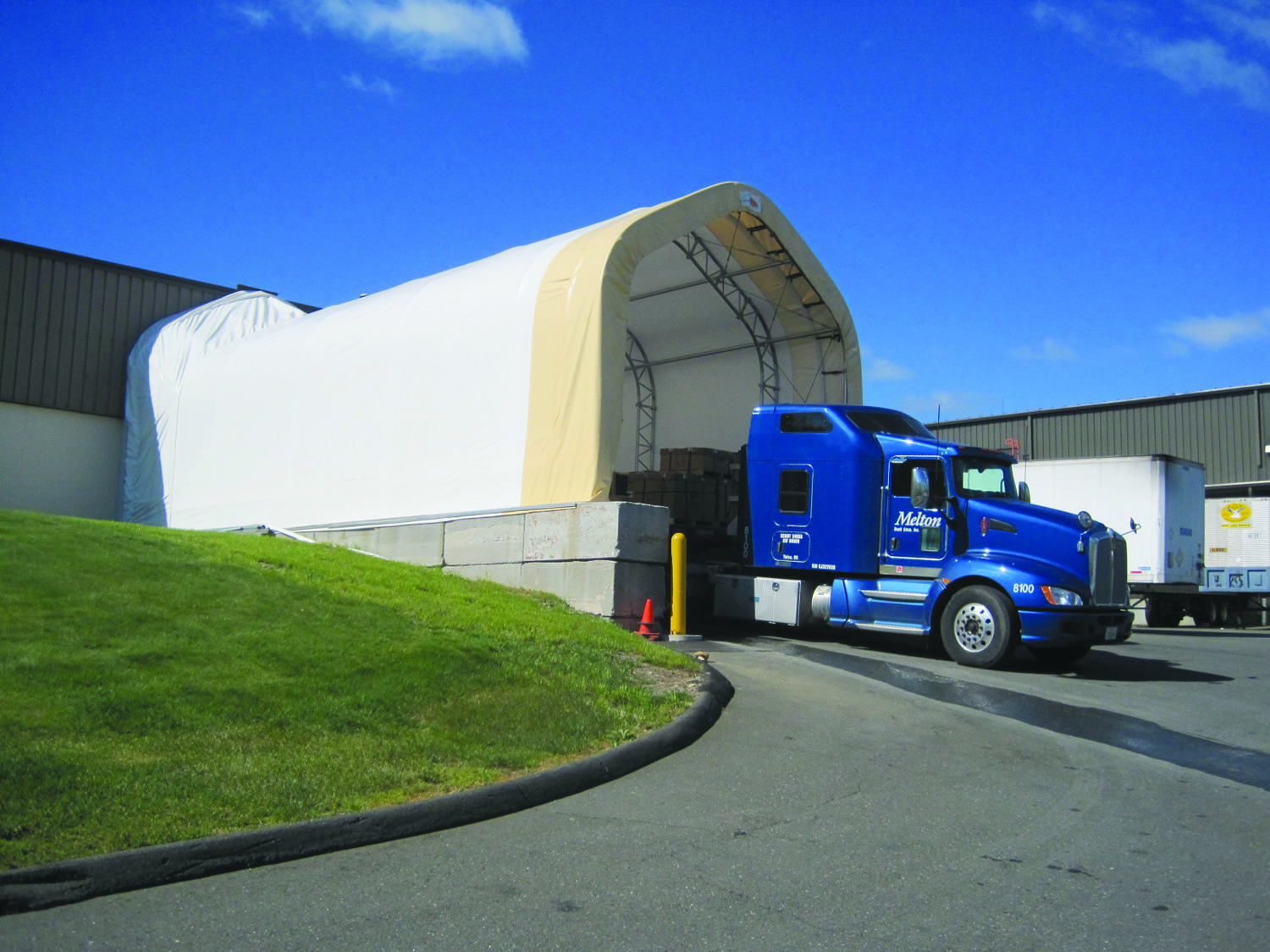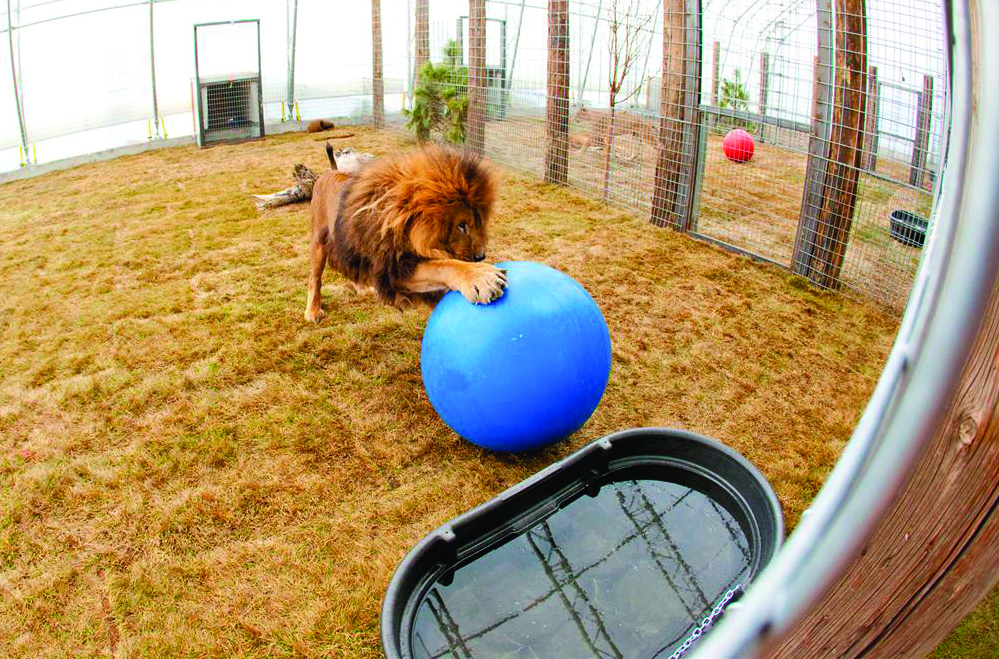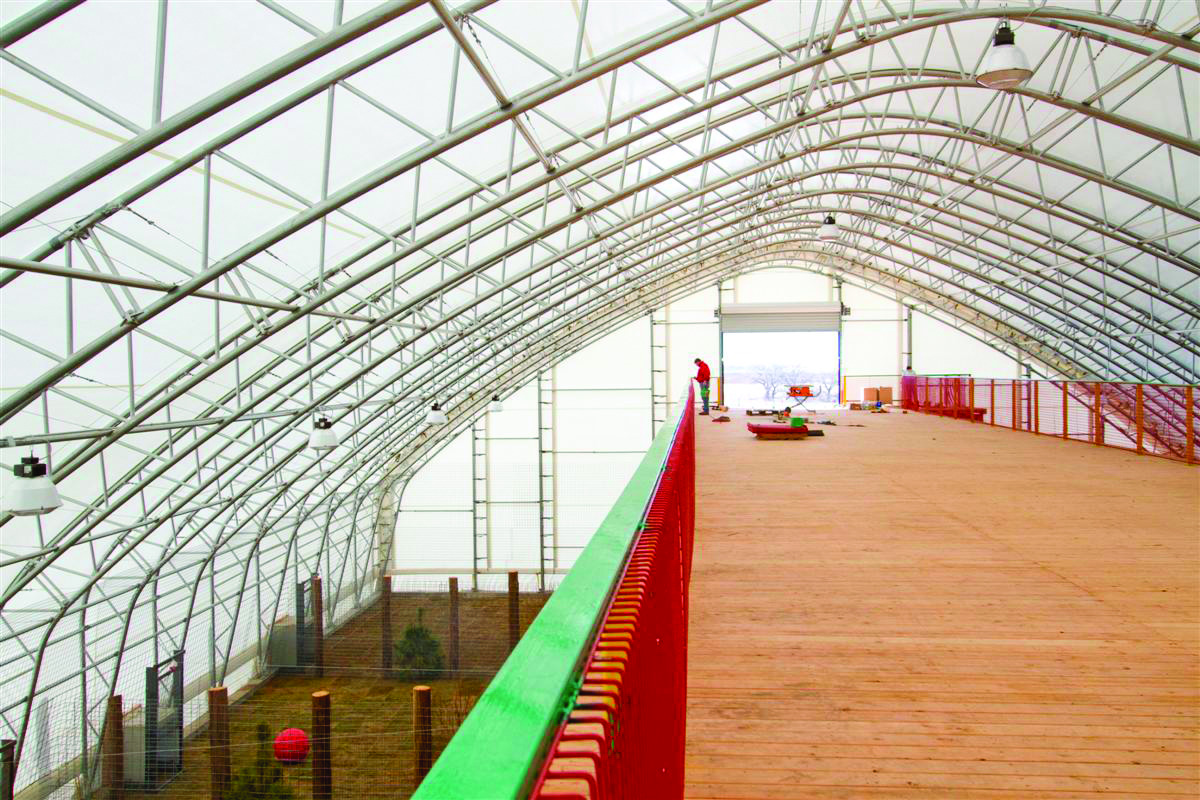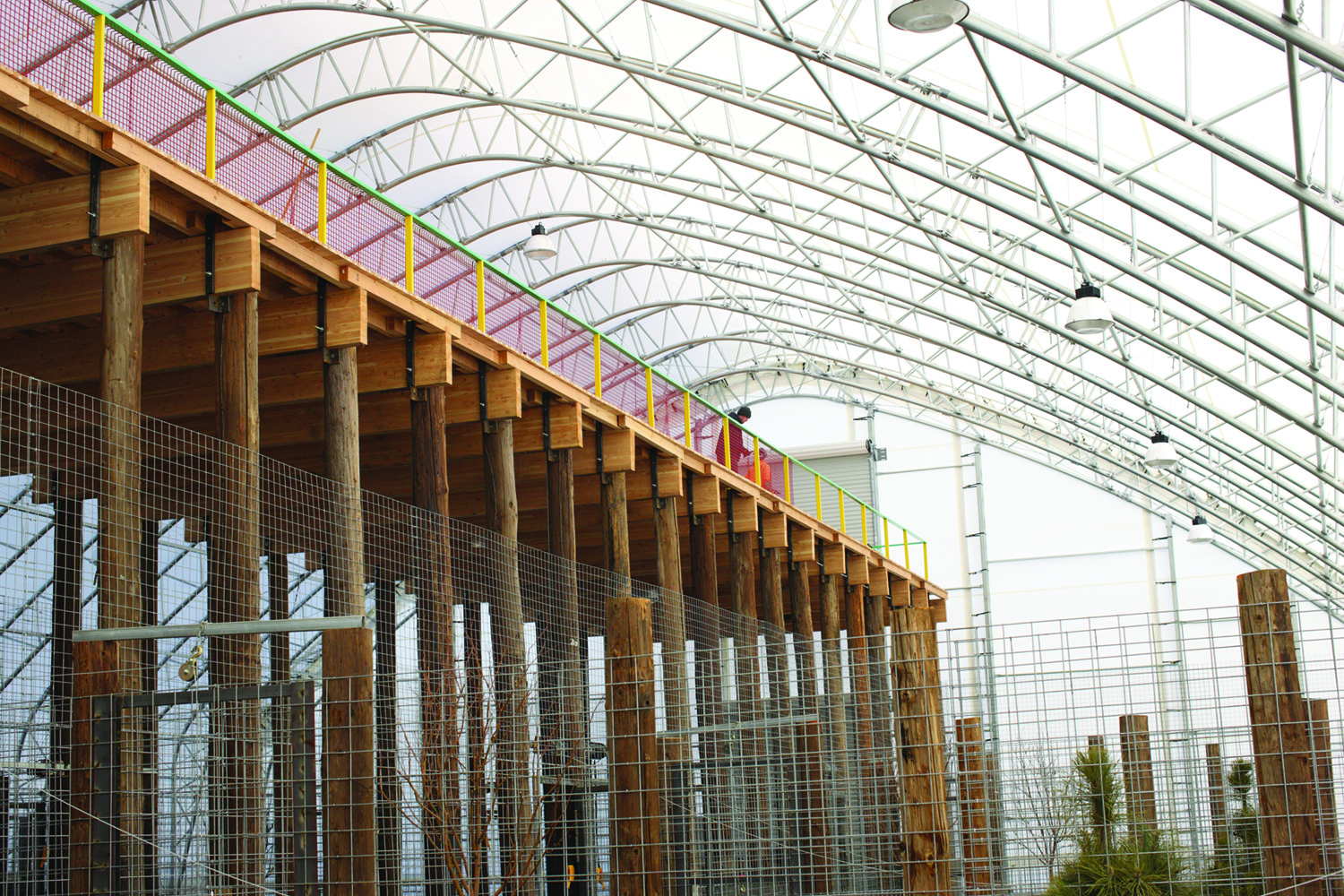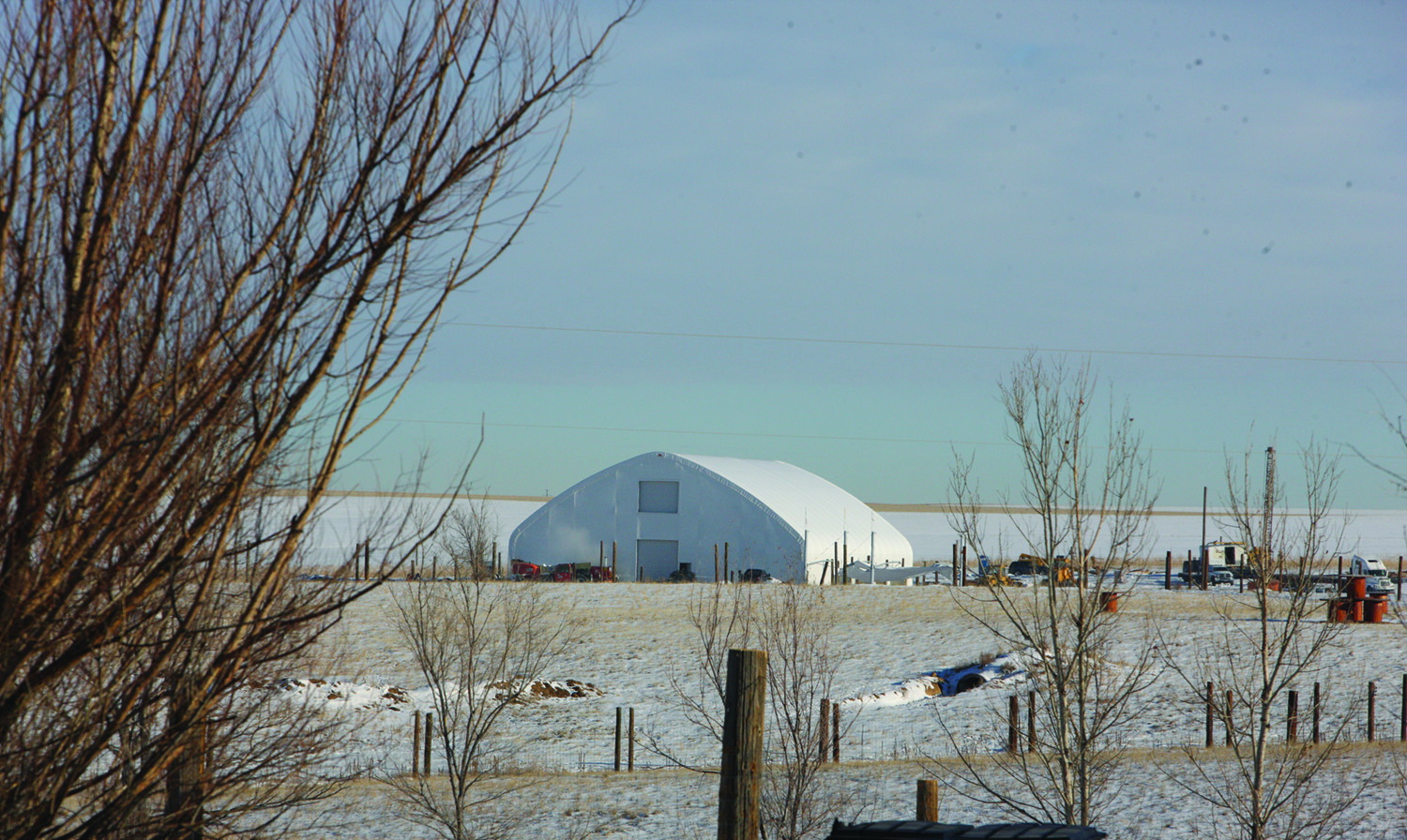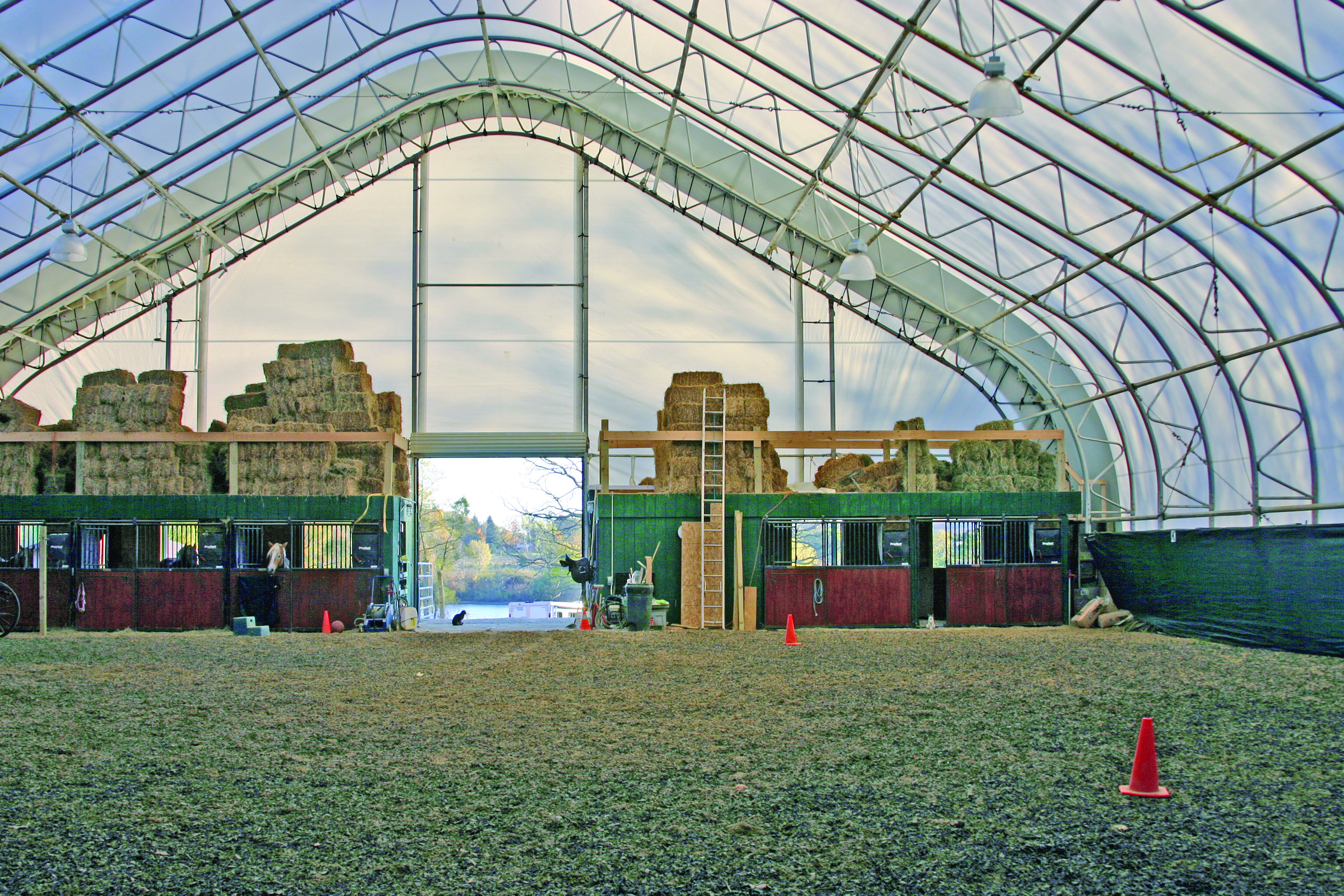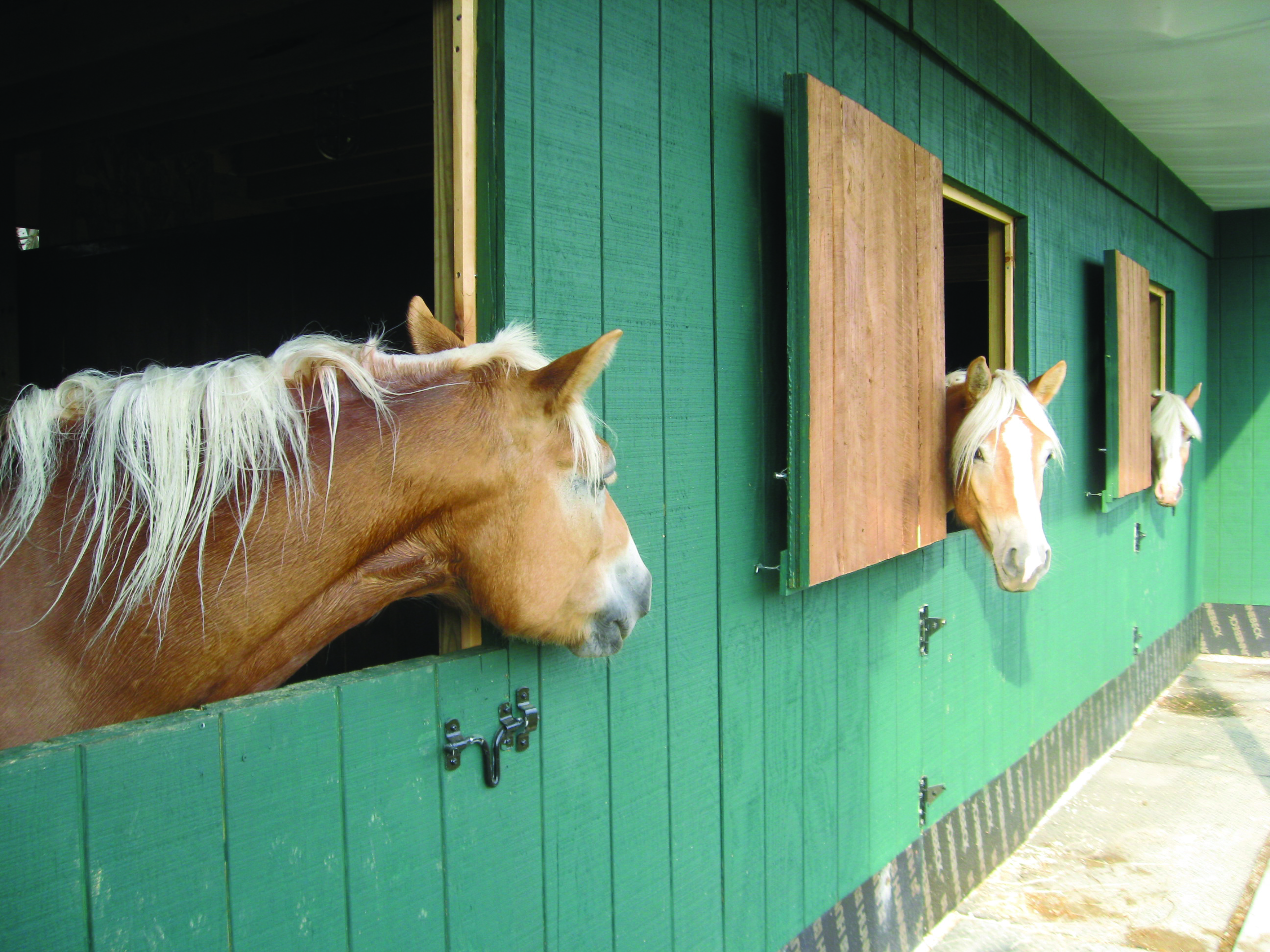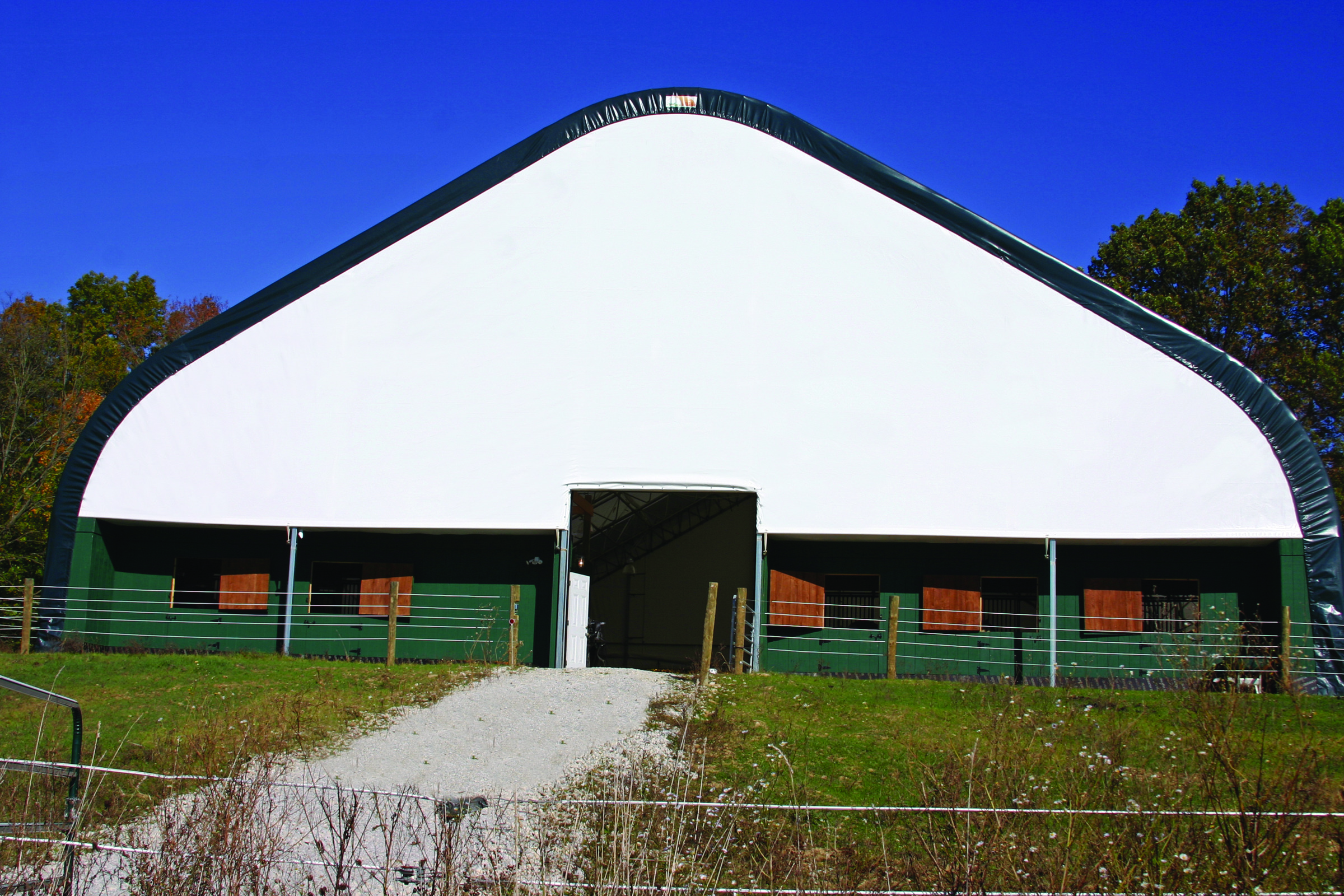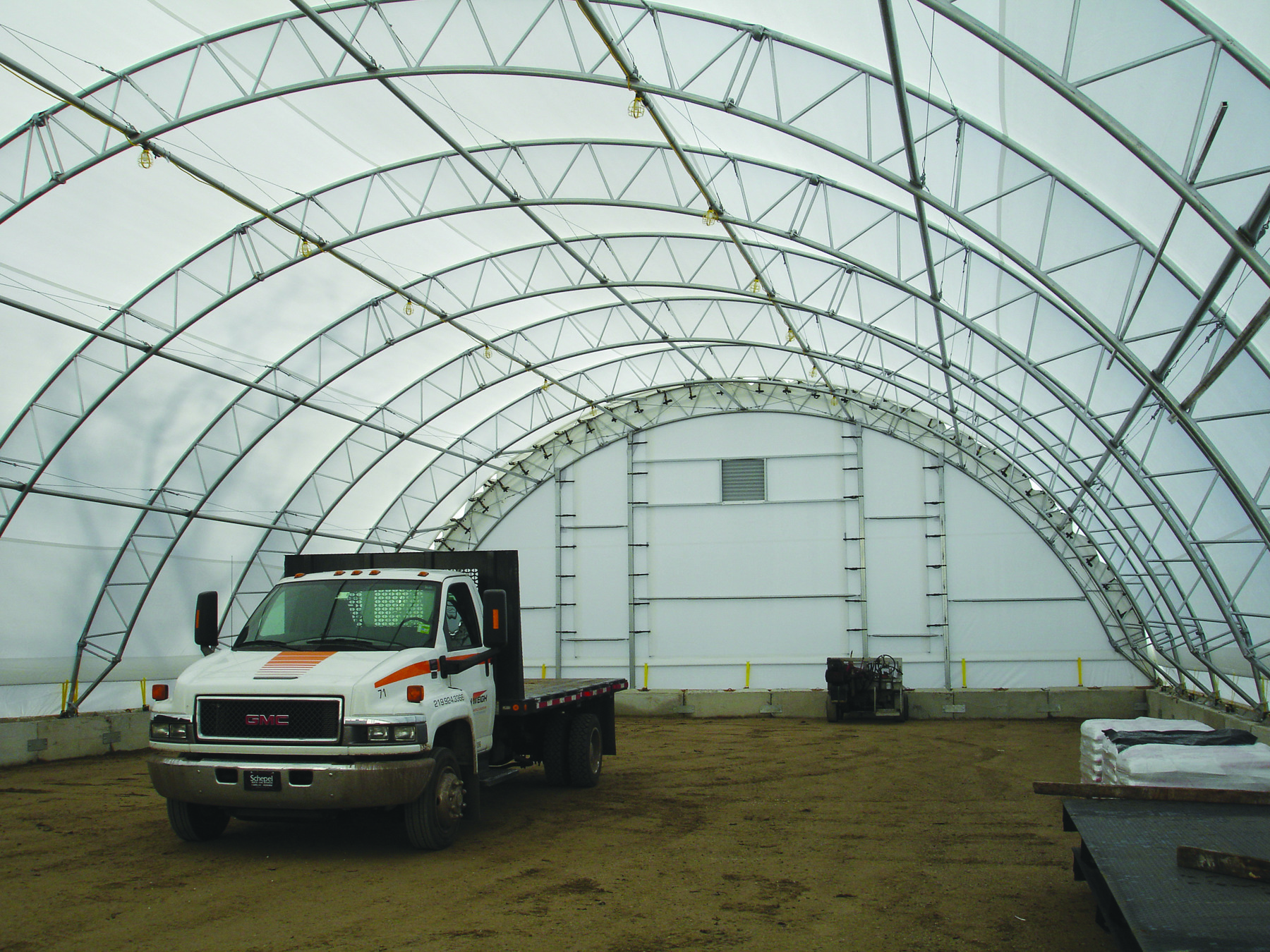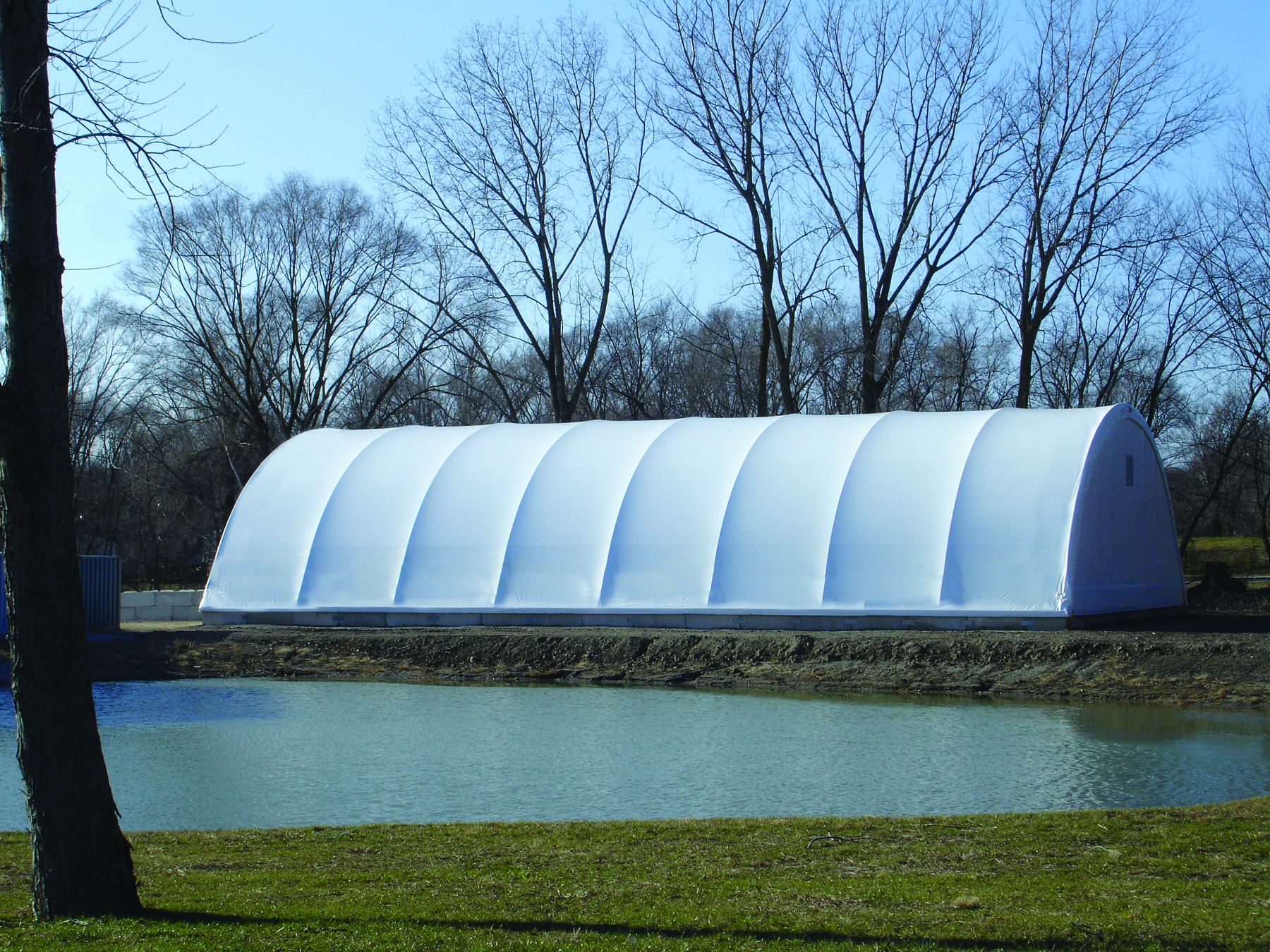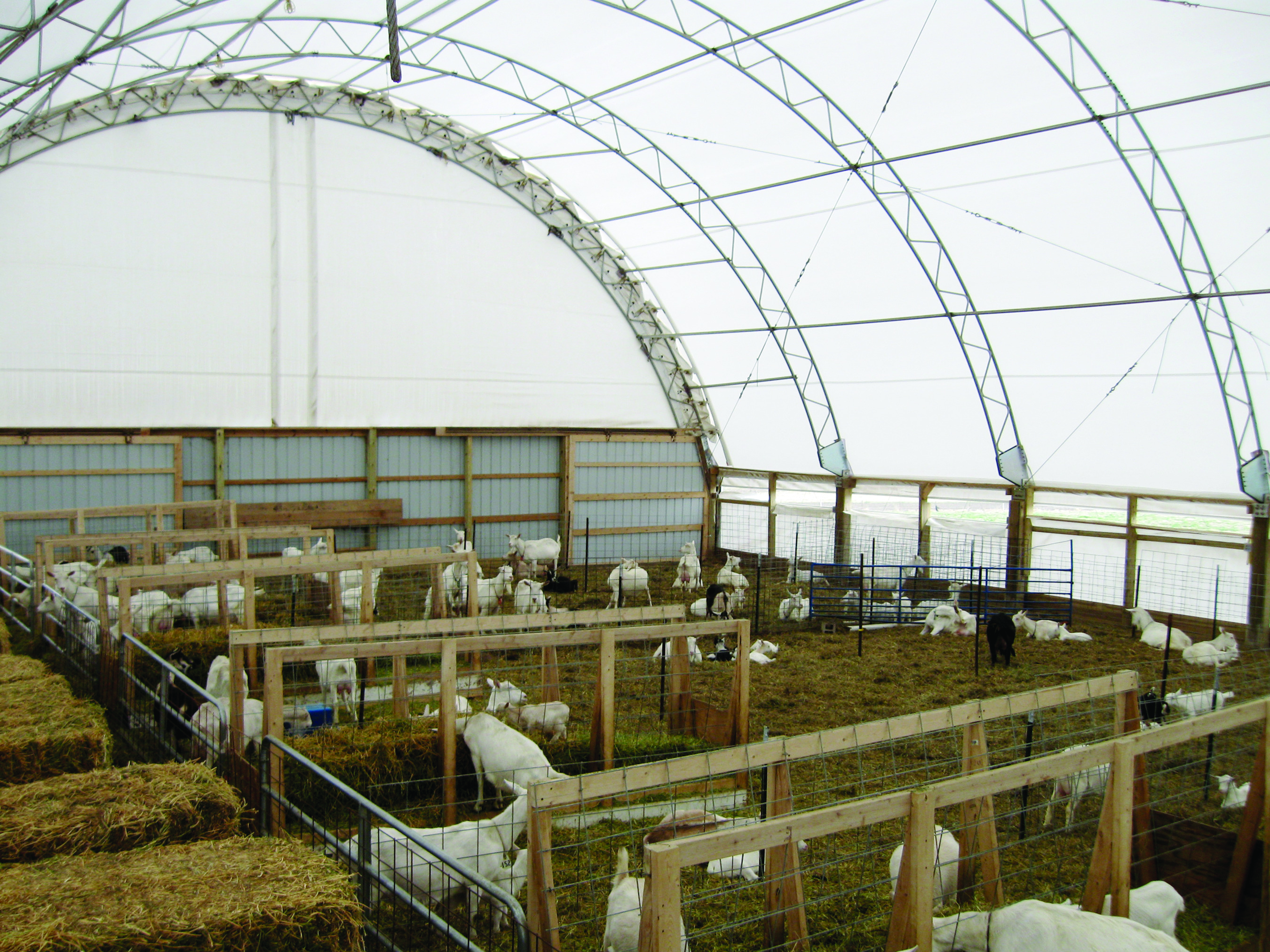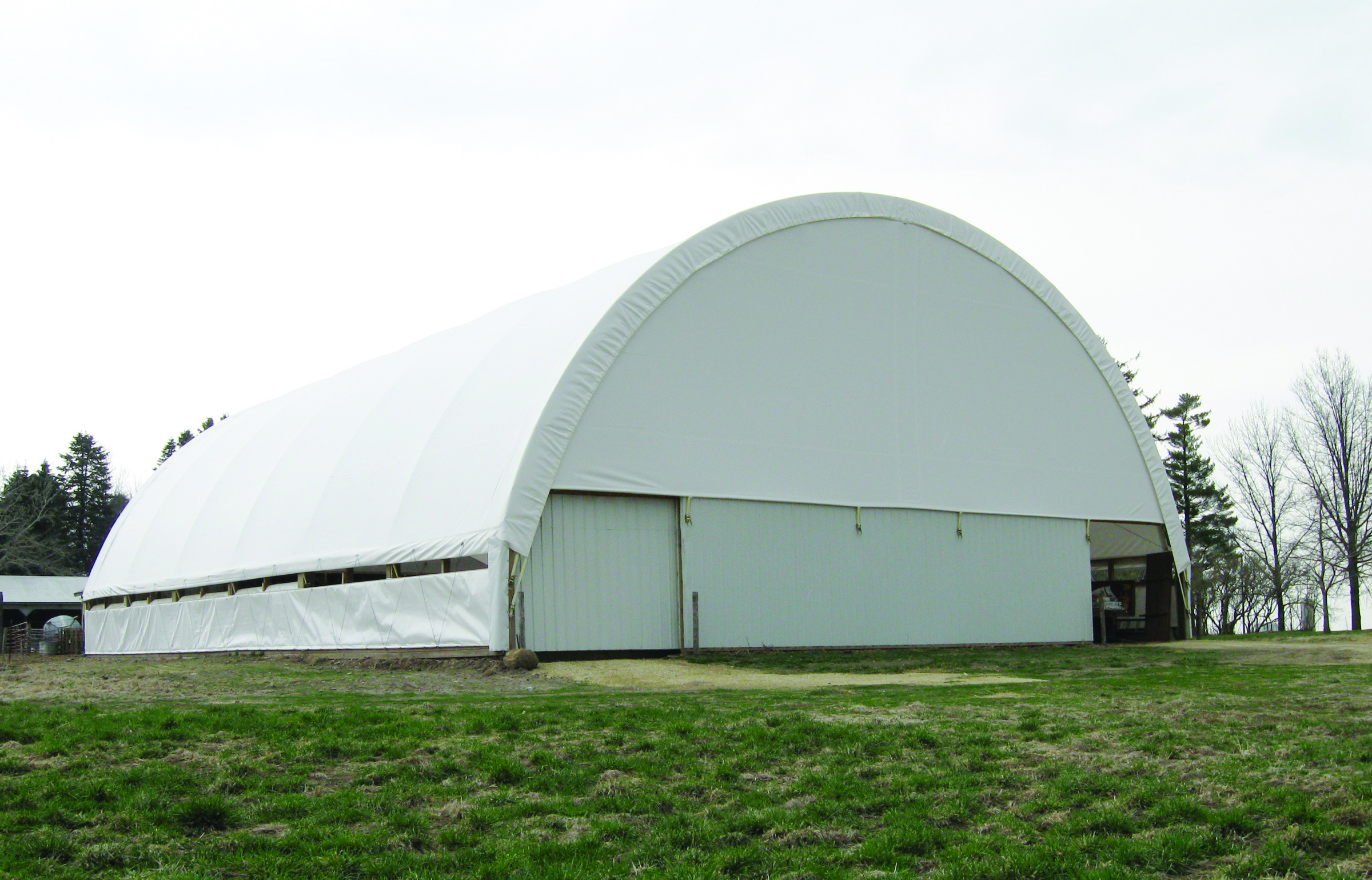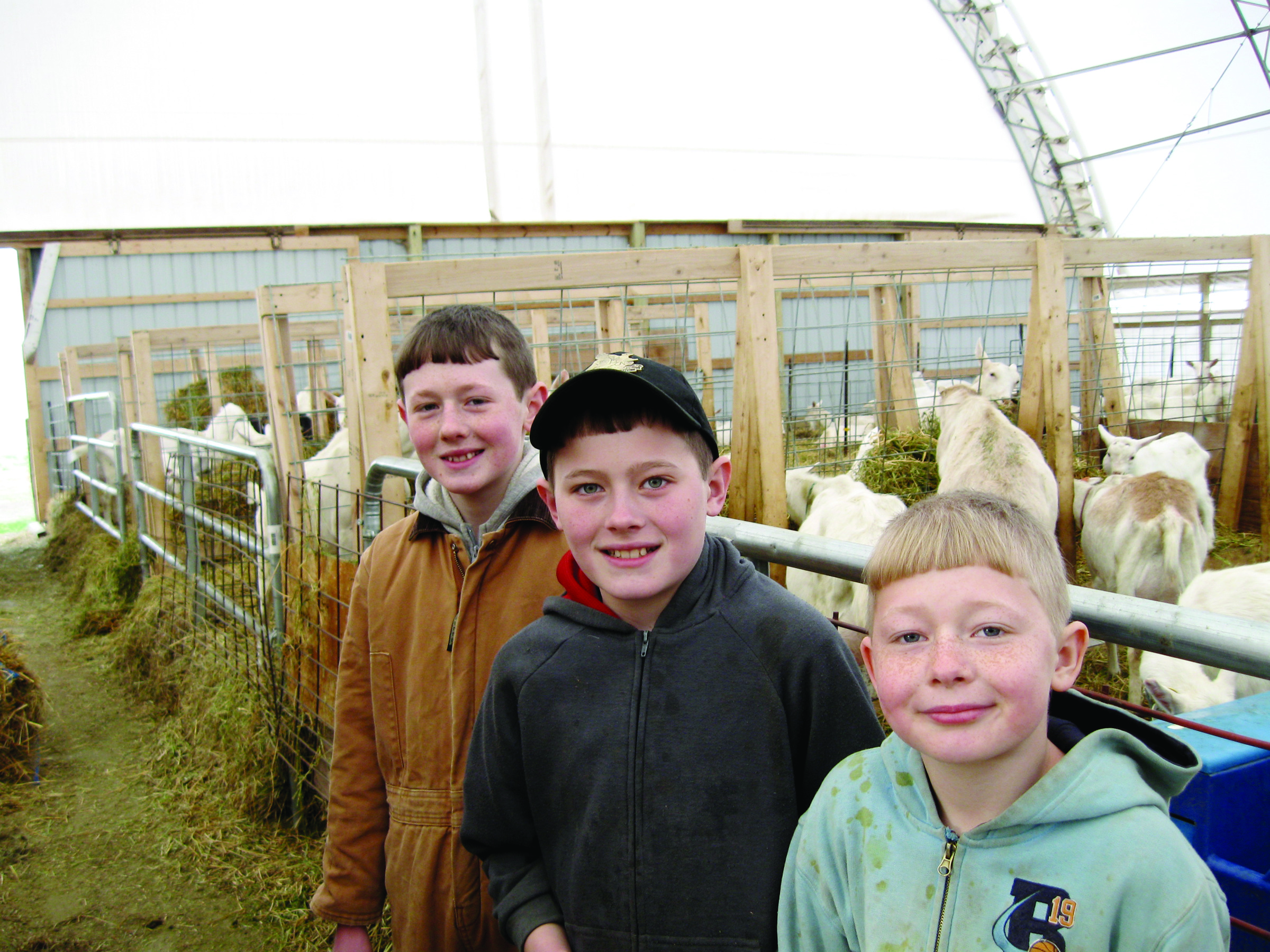Challenge – Farm waste management
Solution – Hercules Truss Arch Building
Size – 83′ wide x 120′ long
Application – Composting
The University of Connecticut’s Office of Environmental Policy, Storrs campus, was established in 2002 to improve UConn’s environmental performance, develop and coordinate campus sustainability initiatives and ensure compliance with state and federal environmental regulations. One such effort for the office was to work with the farm managers in the College of Agriculture and Natural Resources (CANR) to improve nutrient management practices.
According to Environmental Compliance Analyst Paul Ferri, “Farm waste was managed in a manner associated with traditional farming practices. Semi-solid manure from our livestock barns was stockpiled on various UConn agricultural lands. In the spring and fall, the material was spread on our farm fields to add nutrients to our soil. Liquid manure was stored in tanks at the dairy barn and spread more frequently throughout the year. We recognized the need to better manage our farm waste and reduce the risk of runoff that might affect water quality in nearby ponds, streams and wetlands.” Ferri continued, “In order to improve our farm management practices, a covered composting facility was key.”
UConn’s goals for its covered compost facility included reducing and eventually eliminating the practices of stockpiling and land applying manure, decreasing farm-waste volume, providing research, education and outreach opportunities for CANR and UConn’s extension program, and adding the ability to compost campus leaves and landscaping waste. As a result, the university installed an 83′ wide by 120′ long Hercules Truss Arch Building from ClearSpan Fabric Structures. “We chose a fabric structure because of the affordable cost and ability for expansion,” explained Ferri. “Although we constructed a 10,000 square-foot facility, our site was designed to include a second structure in the future. The ClearSpan structure is very adaptable and will make expansion easy. The facility can grow as our needs grow.”
UConn’s Farm Services Department has experienced a great deal of success in its first seven months using the facility. Ferri added, “We have been able to compost a higher than expected volume of our farm waste. We originally anticipated that this size facility would handle approximately 25% of our farm waste, but we are actually composting about 40%.” The covered facility, constructed on an asphalt pad, allows UConn to control the moisture levels of the compost, making the operations more efficient and preventing anaerobic decomposition in the windrows, which minimizes odors. UConn has already composted a few thousand tons of manure without a single odor complaint from local residents. The facility also protects the windrows from the elements, preventing nutrient-rich storm water runoff from leaving the site or leaching into underlying groundwater.
“I would strongly recommend a ClearSpan structure for anyone looking to cover farm waste material,” concluded Ferri. “ The size of the structure can accommodate all equipment activity, including windrow turners, payloaders and dump trucks. We have been happy with the performance of the whole facility.”
For more information on UConn’s ClearSpan composting facility, visit https://www.ecohusky.uconn.edu/uconncompostfacility.htm or contact Paul Ferri at 860.486.9295.

